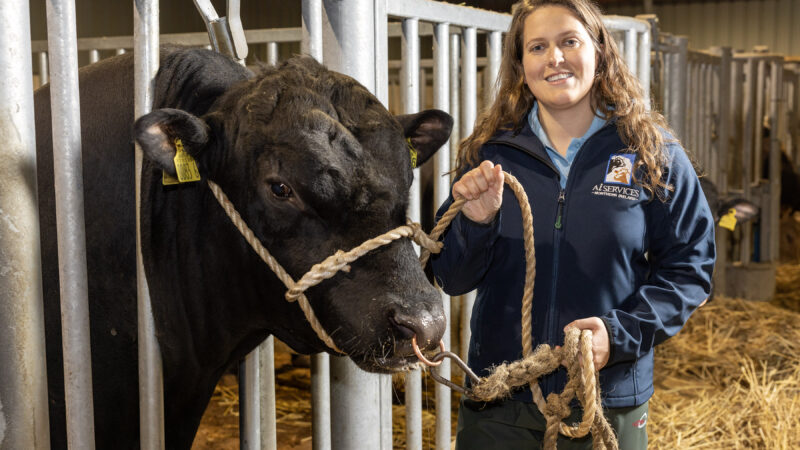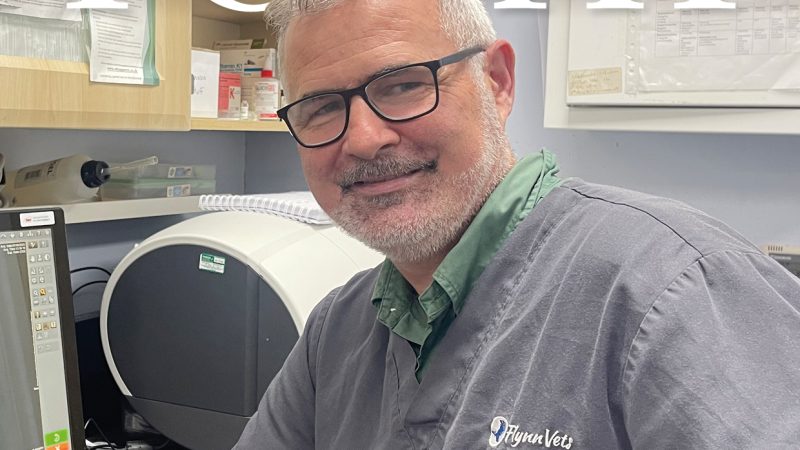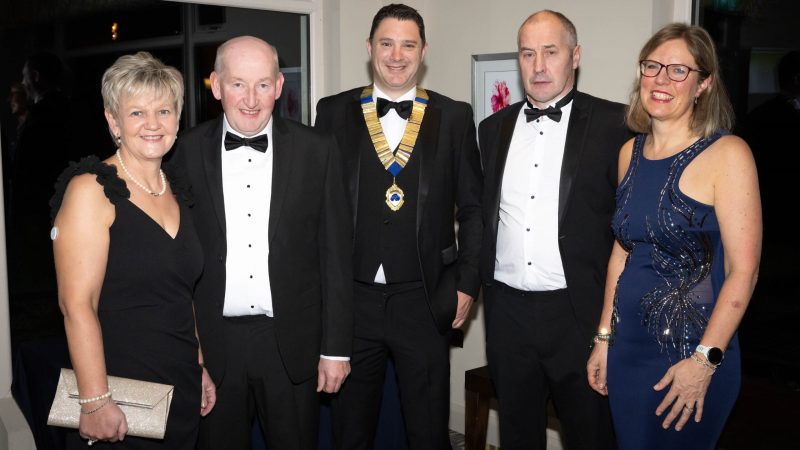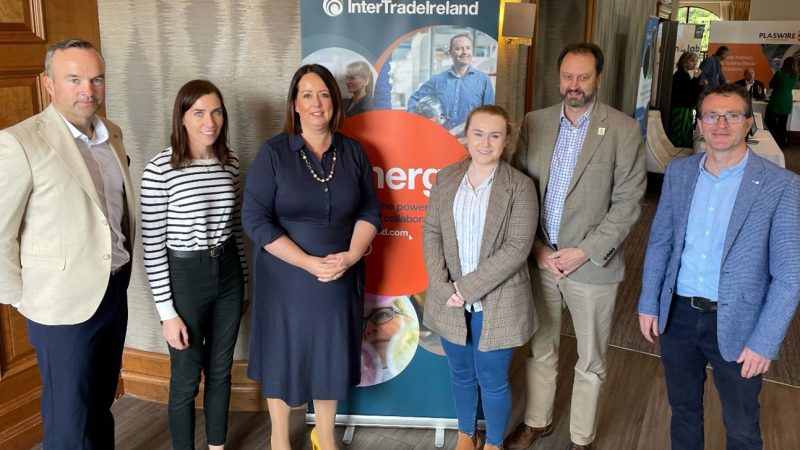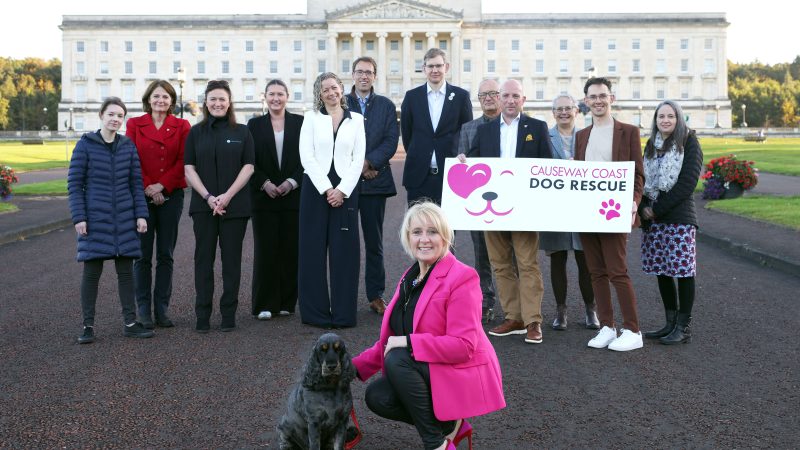A life well spent…
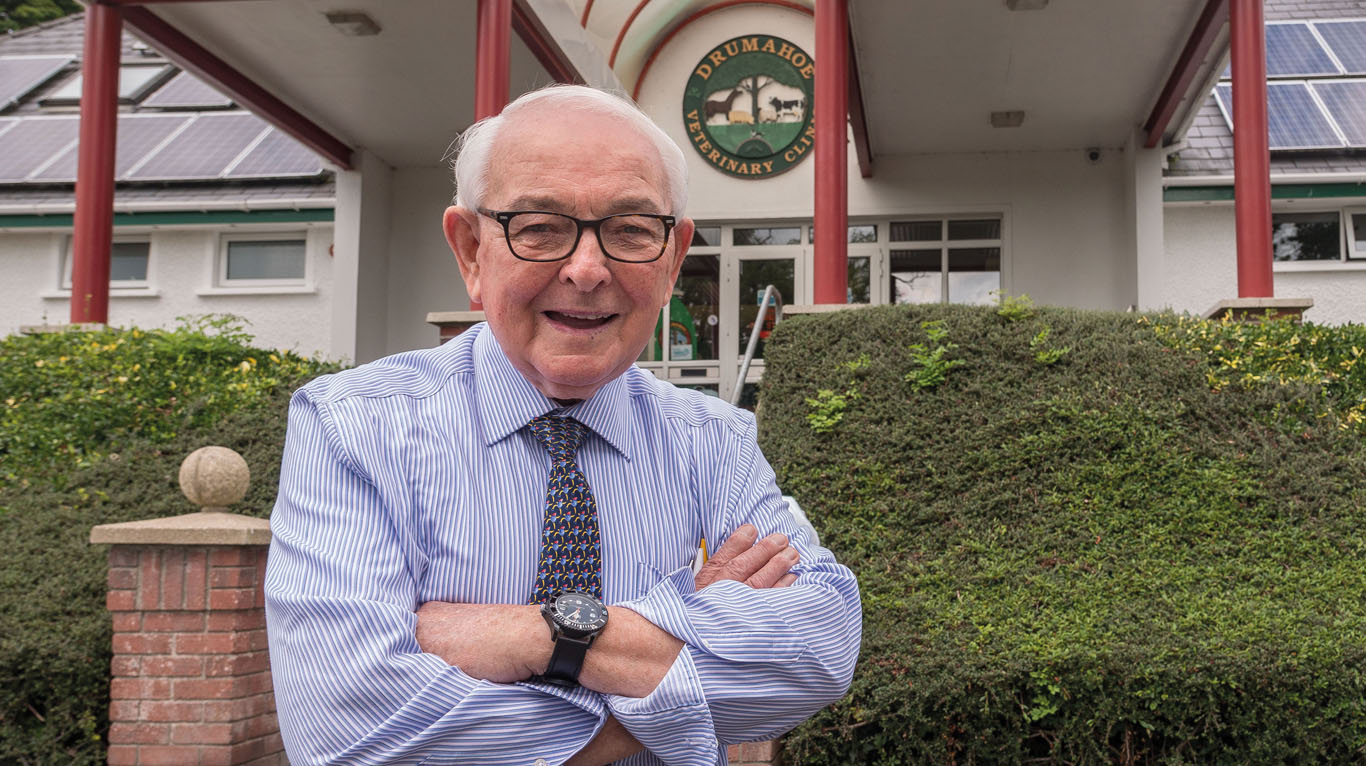
North-west vet, Eddie Campbell, has more than 50 years of practical experience – but he has no intention of slipping quietly into retirement any time soon…
After more than half-a-century in veterinary practice, Eddie Campbell (83) is never short of something to say.
He may begin to offer you a straight answer to whatever question you’ve asked, but before long it will have morphed into some treatment-related anecdote or a fascinating recollection of the people and places that have characterised his long career.
Speaking with a soft Scottish lilt that belies his true origins in the depths of the Spey Valley, Eddie delights in recalling his rapid transition from the lecture halls of the Royal Dick to the fields and farms of north-west Ireland where he has lived and practised since the mid-1960s.
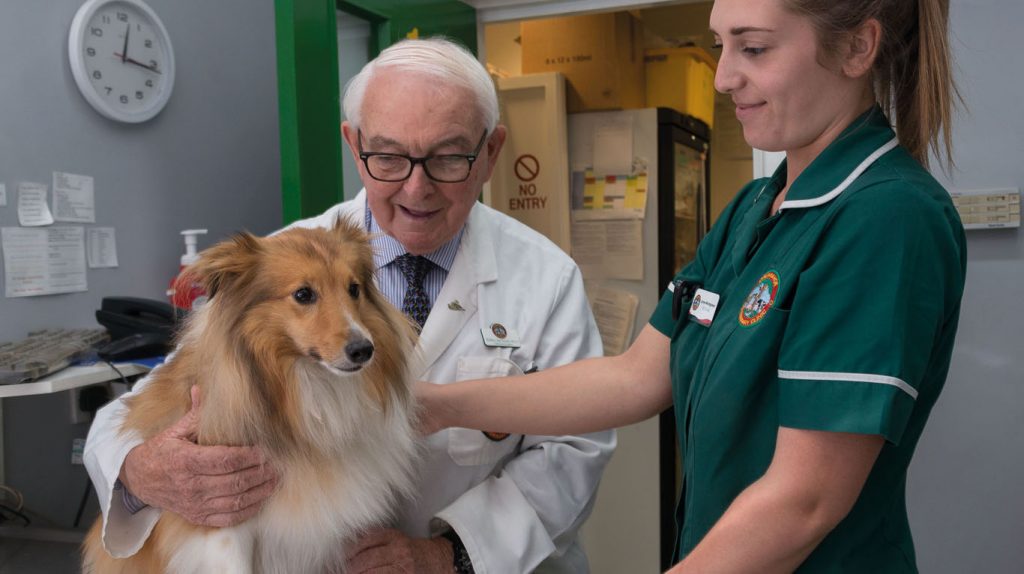
Eddie only really seems to pause for thought when the spectre of retirement is raised. He appears at a genuine loss for words:
‘I used to play a little golf,’ he offers distractedly, then admits that he hasn’t been on a course in years.
Put simply, the veterinary profession has been Eddie’s passion since his earliest days. He still works 20+ hours a week at the family’s practice in Drumahoe on the outskirts of Derry/Londonderry and the prospect of imminent retirement doesn’t seem to be something to which he gives much thought at all.
The business has been part of the IVC corporate network since last year and Eddie’s son, Craig, who joined the practice in 2000 is now its clinical director.
For Eddie, life goes on much as it always has, albeit at a more manageable pace in recent times.
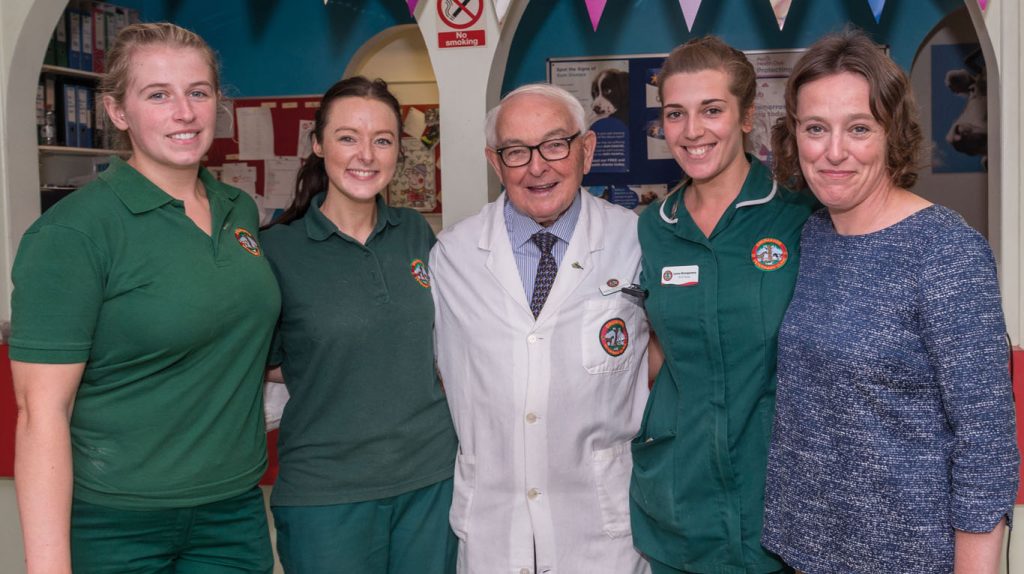
Early days
Raised by his mother in the village of Newtonmore, about 50 miles south of Inverness, Eddie was acquainted with animals and their ailments from an early age. He lived close to his grandfather, George Frazer, who was gamekeeper on one of the local estates and Eddie would chat to the vets that came to treat the animals. One of them, Barry Fairweather, began to take Eddie along with him when he travelled round the local farms and from an early age, Eddie began to develop a familiarity with the realities of large animal veterinary work:
‘I was able to see things at the coal face,’ he reflects. ‘Young people who want to be vets nowadays should spend more time doing this kind of thing. There’s a tremendous amount of disillusionment about today among young ones but if they were out with vets on the job before they went to university, I think it would be of great benefit to them later on.’
One of Eddie’s pals at the time talked enthusiastically about joining the Merchant Navy and for a time, Eddie admits that he flirted with the notion of seeing the world. Academia won out, however, and by the time he was 18, Eddie was studying at the Royal Dick School of Veterinary Studies, eventually graduating on July 20, 1960.
Eddie was in an enviable position. Even before he’d sat down to his final examinations, he had an offer of work. David Laird, who owned the former Fort James veterinary practice at Ardmore, near Drumahoe, had visited the Royal Dick in search of an assistant with ‘common sense’ and a senior lecturer, John Taylor, had directed him straight to Eddie.
After a brief visit to Hawick to wish his mother farewell, Eddie was on the ferry to Ireland where he began work as a vet two days after his graduation ceremony. As soon as Eddie arrived in the practice, David Laird, who worked alone, took a fortnight off and his new assistant received a baptism of fire.
‘Most vets take a couple of months off after their graduation,’ remarks Eddie. ‘I got a couple of hours…’
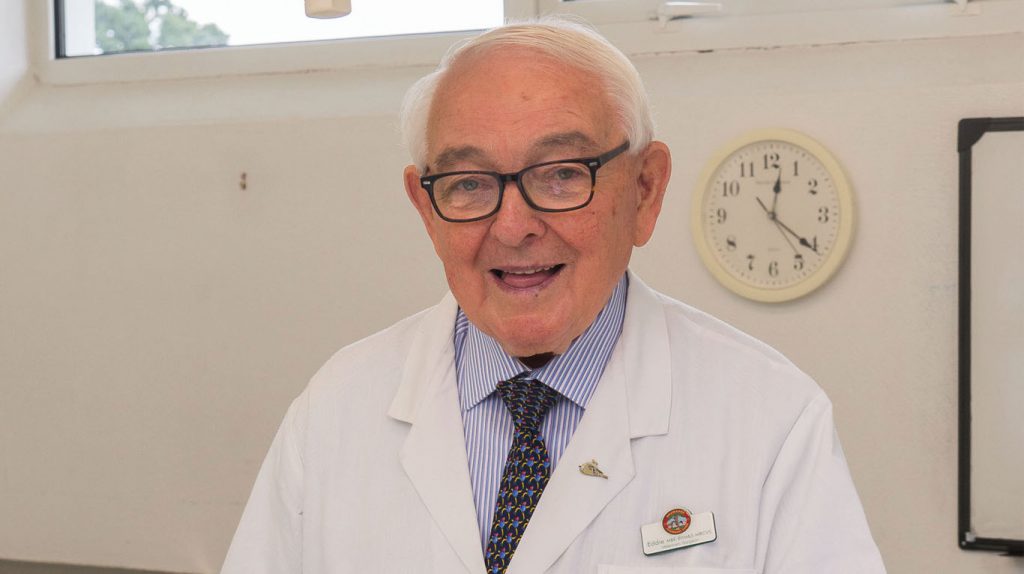
Married
During those first frenetic days in his new practice, Eddie was called to a farm at Gorticross where a cow had reportedly choked on a potato. While he was there, he met Dorothy Craig whose father owned the farm. Eddie rendered what assistance he could to the distressed animal:
‘After my first call at 10.30am I then went back at 1.30pm and again in the evening’,he recalls. ‘Maybe to check the cow, maybe to check the girl. Dorothy’s father said, ‘He’s a very attentive vet but I’m not going to pay for three calls to a cow that choked on a pratie.’
Dorothy, a teaching student, eventually became Eddie’s wife and on the day that Eddie spoke to NI Veterinary Today, he and Dorothy were celebrating their 57th wedding anniversary.
Eddie remembers that as David Laird got older, he got slower and less able to manage the physical rigours of large animal care. On New Year’s Day in 1969, David made good on a promise to Eddie and sold him the farm animal end of the Fort James business, followed 10 months later by the thriving companion animal element of the practice.
Although David retired as soon as the practice had been sold, he would return regularly to assist Eddie and carry-out surgical work.
After Eddie had acquired the practice, he and Dorothy bought a house nearby – Bella Vista – which they renovated and adapted. Then Eddie moved the practice, which he’d renamed Drumahoe Veterinary Clinic, into the house where they were also living. It quickly became evident, however, that if the young couple were to enjoy any quality of life, they would have to separate their home life from the business of the clinic.
In August 1969, work began on a new practice building at Ardmore at the picturesque site still occupied by the clinic today. Indeed, while the premises has been renovated and re-equipped periodically over the years, its basic configuration differs little from the original layout envisaged by Eddie and Dorothy five decades ago.
Assistance
The practice enjoyed great loyalty, particularly from the local agricultural community and as the seventies wore on, business levels necessitated the employment of locums to alleviate the pressure on Eddie, who was working single-handedly. Eventually, there was a need for permanent help and the first assistant vet arrived at Drumahoe. Unusually for the era, it was a woman – Jill Bell, who came to Drumahoe from just outside Lisburn.
Over the years since, faces came and went but there were never any more than three vets in the practice at one time.
These days, the Drumahoe practice consists of three consulting rooms, an admissions room, a dental area, a main theatre, special facilities for ophthalmology and patient hospitalisation, a cattery and facilities for large animal and equine care.
Eddie himself collected an MBE in 2014 for services to the veterinary profession. He and Dorothy made the trip to London to collect the honour.
Corporate
He’s handed responsibility for the future of the practice to Craig and seems, if not enthusiastic, then generally content with the arrival of IVC last year. He’s never been one for involvement on the corporate side, he says.
‘It’s a rare thing that pleases everybody. In terms of corporate buy-outs here, I think it will reach its own level, a point where it can’t grow any further. There are still plenty of small, independent practices in Northern Ireland and I think there always will be…I’m not completely in love with the whole idea, but they [IVC] have been very fair to us.’
A member of both the AVSPNI and the NIVA, he admits to only rare attendances at the organisations’ big annual events and most of his CPD commitment was undertaken in the north-west under the auspices of the UCD’s School of Veterinary Medicine.
He’s happy to reflect a little on the evolution of the profession over his decades in practice. Young vets now are much keener to pursue ever-greater specialisation, he says, and there’s less emphasis on the practical than there was when he was young. He repeats his belief that would-be vets should seek practical experience alongside seasoned practitioners.
‘There’s a great disillusionment among young vets now and a higher rate of suicide than there is among other professional people,’ he remarks.
Eddie’s highest hope, he says, is for continued health but he’s still reluctant to contemplate an end to his career:
‘I’m not really planning to stop at any time,’ he insists. ‘I just wouldn’t be happy if I had nothing to do…’

